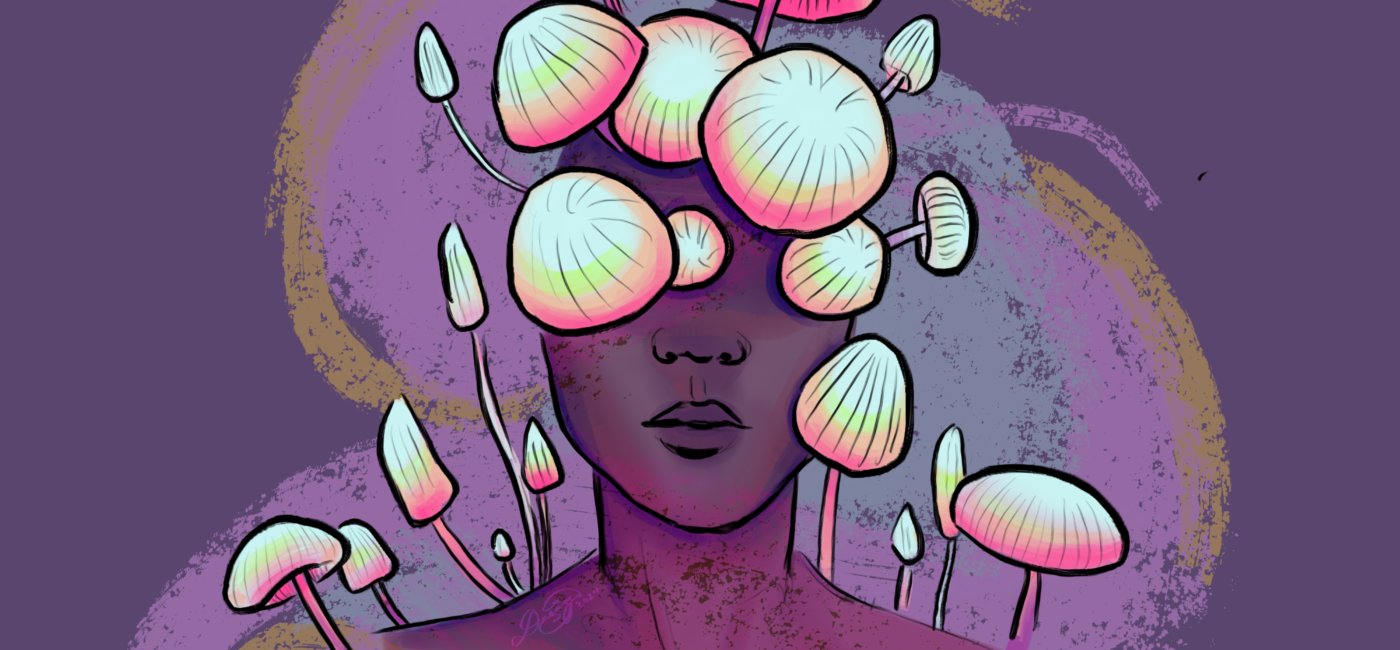While psilocybin, the active psychedelic compound in magic mushrooms, is illegal for both medical and recreational purposes in most countries, studies are increasingly pointing to its potential uses in psychotherapy, especially for relieving anxiety and depression in patients who have terminal illnesses. Canada, alongside Australia, is currently one of only two countries in the world allowing psilocybin prescription through what is known as “compassionate access” for patients without other effective treatment options.
Although Canada has allowed psilocybin use in limited therapeutic contexts since 2020, there is a lack of research on how psychedelic experiences have affected real-world patients. According to Sara de la Salle, a postdoctoral fellow in McGill’s Department of Psychiatry and first author of a recent study following eight real-world patients after their psychedelic experiences, there is even a lack of data on how many patients have accessed psilocybin.
“I’m sure Health Canada knows how many they’ve approved, but there’s no public information on this process,” de la Salle said in an interview with The Tribune. “What prompted [our study] was just to have any type of information on what these people were going through, because there’s nothing. There’s no reports.”
Her research aims to address this lack of information through a voluntary survey completed by patients who received psilocybin through legal means between 2020 and 2022.
The day after participants’ psilocybin treatment session, researchers looked at factors like how safe they felt during the session, what side effects—nausea, vomiting, etc.—they experienced, and how meaningful they perceived the session to be. In addition, they used two assessments that are common in psychedelic research: The Mystical Experiences Questionnaire (MEQ) and the Emotional Breakthrough Inventory (EBI).
“Those two are very prominent measures in psychedelic studies, but usually not so much in more traditional treatments for depression,” de la Salle said. “They’re trying to capture things that are difficult for people to describe, like transcendence of time and space, or ineffability.”
Of the five participants who filled out this portion of the survey, one considered it to be the most meaningful experience of their life, and two said it was the most spiritually significant experience of their life. The average MEQ score was 64.3—for perspective, the threshold for having a ‘complete mystical experience’ is a score of 60 on all sections of the questionnaire—and the average EBI score was 63.4 out of 100.
In addition to this data, eight participants filled out the survey two weeks after their treatment session. This part of the study compared patients’ self-reported symptoms of anxiety and depression, pain, and overall well-being to their pre-treatment levels.
“We wanted to mimic what is being looked at in clinical trials to see: Are the benefits the same? Because we don’t really know what is going on with people who are getting special access,” de la Salle explained. “And we did, in fact, see very similar benefits.”
A majority of participants noticed some improvement in their symptoms of depression, spiritual well-being, and relationships with family and friends. On the other hand, six patients reported no effect on their pain levels, and four patients found no effect on their fear of death. Additionally, one of the eight patients experienced generally worsening mental health after the session.
Interestingly, the study also asked participants to predict how they thought the intervention would impact them. While the actual results were generally positive, they underperformed compared to the predictions, indicating that it may be worthwhile to temper patients’ expectations of psilocybin-assisted psychotherapy.
While the study is limited by its small sample size and lack of in-person contact with patients, de la Salle believes it is an important addition to real-world psilocybin research in Canada.
“It was a good step in the right direction. There are more attempts to collect information, but really we just wanted to send the message that [psilocybin-assisted psychotherapy] can be beneficial, but we don’t have any information,” de la Salle said. “And since Health Canada grants these approvals, it would be very easy for them to have some way of collecting information.”



